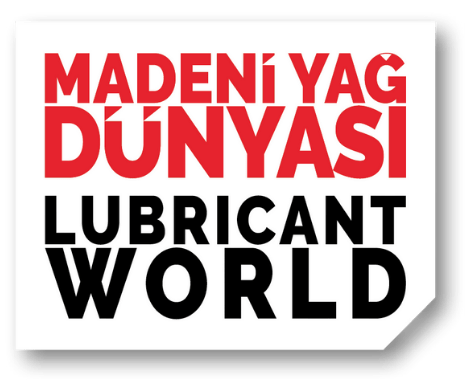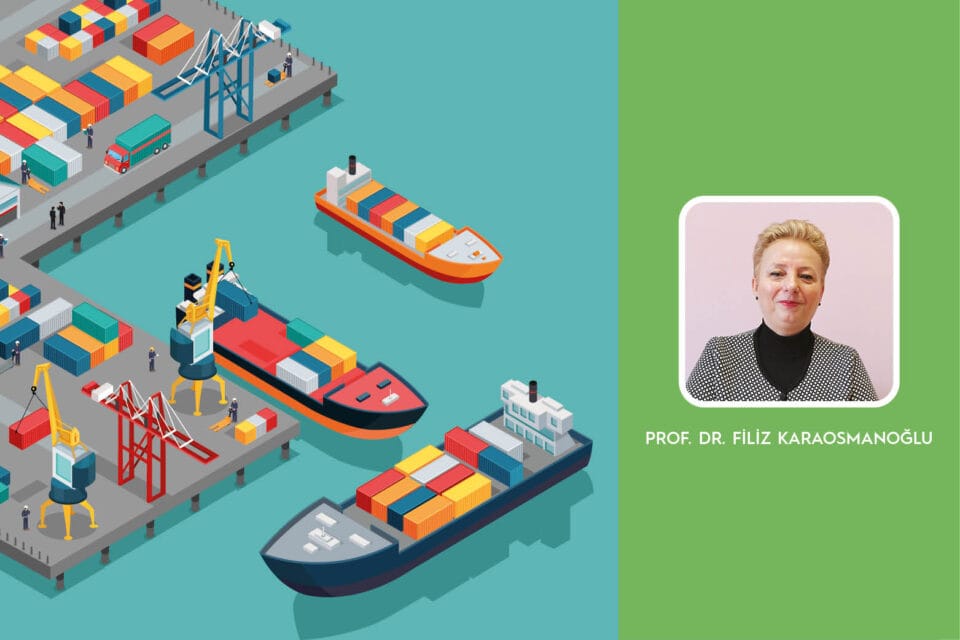Life, in other words the food chain, begins with photosynthesis in soil and sea. Seas and inland waters are the blue power of life in our planet’s water, nitrogen and carbon cycle. Biomass is formed in fresh and salt waters in the presence of sunlight, carbon dioxide and nutrient elements. Plant microorganisms (phytoplankton), which are single-celled algae that get their green color from chlorophyll, are sinks for carbon dioxide in the atmosphere and produce almost half of the oxygen on our planet. Phytoplankton, the first element of the food chain, combats climate change as microscopic trees in the underwater forest. Phytoplankton and plants, the products of nature’s biorefineries, in other words “biogenic carbon”, are the most critical element of our lives.
We must all protect our food chain. Because the atmosphere and water have no boundaries. If we produce greenhouse gas emissions by affecting climate change at any time and anywhere on our planet; we, as an example, threaten the life of the Emperor Penguin, which lives only in Antarctica, in the Southern Ocean. As the most selfish living creature that lives along with plants, animals and microorganisms, humans have a great responsibility. By introducing you to my new friends, the Emperor Penguins, whom I met during our Antarctic expedition in March 2024, I say let’s not harm living creatures. I will tell you about our expedition, our record and my days in that huge nature lab.
Fuels in maritime transportation are of particular importance while protecting our aquatic ecosystem. Because in our fight against environmental pollution, biodiversity loss and climate change, which are the three main urgent problems of our planet, passenger, cargo and military maritime transportation must be planet-friendly. All effects of maritime transportation, especially the fuel carbon footprint, in the delivery of production inputs to the facilities, in the supply of products to the market, and in the best supply chain management are important in environmental sustainability management. In order to change for green, digital and circular in maritime transport, we must embark on the path of transformation. Maritime transportation is the most widespread transportation network and an indisputable element of international trade with different transportation options. The possibility of transporting large goods at once makes maritime transportation advantageous compared to land and air transportation. However, it is essential for the sector, which consumes huge amounts of oil-based fuel, to reduce greenhouse gas emissions.
The International Maritime Organization (IMO) announced the revised “Strategy on Reduction of Greenhouse Gas Emissions from Ships” in July 2023, calling it our common vision and ambitious goal. Low-carbon fossil fuels, biofuels, hydrogen and ammonia economy and electrification have gained importance in the sector. Reducing greenhouse gas emissions from shipping and achieving the industry’s net zero emissions target is not easy. Global and national supportive policies and incentives, technological innovation and value chain cooperation in the business world are required. There is a need for partnership and collaboration between shippers and the ports and the industry. It is necessary to work hard for the green economy on land and the blue economy on water. For more info, visit: https://www.iea.org/energy-system/transport/international-shipping
The terms of “sustainable marine fuel (SMF)” and “sustainable marine blending component (SMBC)” are now a part of maritime transportation. The word sustainable here means biogenic carbonaceous hydrocarbon of non-fossil origin. SMBC was defined as “a product that is produced from non-fossil resources and can be blended with marine fuels and has an internationally valid sustainability certificate” with the amendment dated 2004 (Official Gazette dated 5 April 2024) to the Regulation on Technical Criteria to be Applied in the Petroleum Market of the Turkish Energy Market Regulatory Authority (EPDK). This day has come with a lot of hard work. I congratulate the valuable members of the Petroleum Market Department, especially our gentil EPDK President Mr. Mustafa Yılmaz, and the employees of our biorefineries, especially the President of the Biofuel Industry Association, Mr. Selçuk Borovalı, and wish our green path in the blue to expand.
In Türkiye, where investor interest is high, our biorefineries can be one of the leading suppliers in SMF and SMBC production. International Sustainability and Carbon Certificate (ISCC) certification is essential. The first Turkish company to become an ISCC member was our biorefinery DB Tarımsal Enerji. Loud applause. I would like to extend my greetings to Arkas Bunker, which broke new ground in Türkiye and received ISCC for marine fuels, and to our maritime industry, especially our esteemed ITU Graduate and General Manager Mr. Seçkin Gül. My “ahoy” to them from the Kireçburnu Coast, in front of the Coast Guard Marmara and Straits Regional Command. As a traveler, I am particularly fond of lighthouses. I love our lighthouse in Kireçburnu. On my way to university, I always salute our marine soldiers with a short honk. In 1773, Istanbul Technical University was founded under the name “Mühendishane-i Bahr-i Hümayun (Imperial Naval Engineering School)”. ITU is our key strength in maritime education and our alumni are our pride.
IX., which we will hold at ITU on 6-7 May 2024. In our event themed “Risks, Opportunities and Carbon Trade Due to Climate Change” at the Istanbul Carbon Summit, we welcomed our stakeholders to the QS World University Rankings: Sustainability 2024 general ranking of İTÜ, which ranked 221st in the world and 148th in the world in the environmental impact category, and ranked 1st in Turkey. We will hold the 2024 Low Carbon Hero Award ceremony at Ayazağa Campus, hosting our stakeholders with the taste and smell of coffee, listening to business leaders, applauding the Sustainable Production and Consumption Association 2024 Little Carbon Hero show. Welcome to our fight against climate change. We wait.
We will hold Istanbul Carbon Summit with the theme of “Risks, Opportunities and Carbon Trade due to Climate Change” at ITU on 6-7 May 2024. We will welcome our stakeholders with the smell and flavour of Turkish coffee in the venue of Ayazağa Campus of Istanbul Technical University, which is ranked 221st in the world in the Sustainability 2024 general rankings, 148th in the world in the environmental impact category of QS World University Rankings, and ranked 1st in Türkiye. We will also listen and applaud to business leaders in 2024 Low Carbon Hero Award ceremony and 2024 Little Carbon Hero Award show organized by the Sustainable Production and Consumption Association. You are most welcome to our fight against climate change. Looking forward to meeting you.




